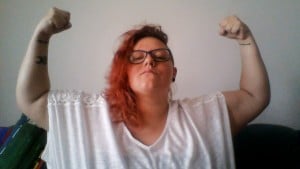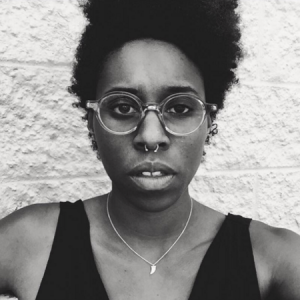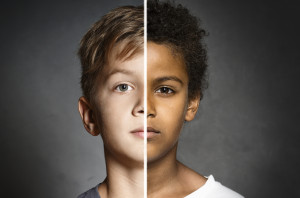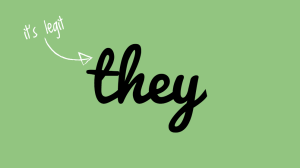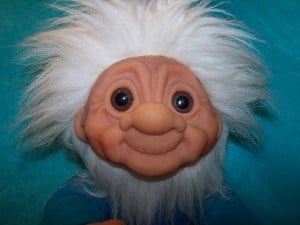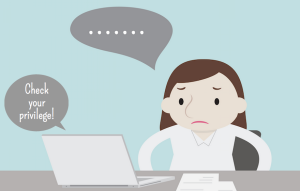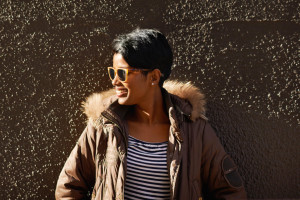
iStockPhoto
I’d always had long hair.
But more than having long hair, I had hair which, by our society’s beauty standards, was “beautiful” – long, silky, and straight.
I had people, even complete strangers, compliment me on my locks. Some people would even tell me how beautiful I was just because of it.
I would nod, smile, and say thank you. That’s what we’re taught to do when people pay us a compliment, isn’t it?
But inside, I had a secret.
I wanted to cut my hair.
And not just a little. I wanted a pixie cut.
When I expressed this to people, they urged me not to go through with it.
“It would look so ugly.” “Why would you do that? You’re so beautiful.” “Such a beautiful girl like you, cutting her hair? Why?”
But in spite of everyone’s opinions, I cut off fifteen inches of hair last year, gifting myself the pixie haircut I always dreamed of.
And I loved it.
Cutting my hair was one of the best feelings in the world.
But it also got me thinking: I was always physically free to cut my hair, so why did it take me so long to do it?
And the truth was: I didn’t feel free. I felt like a prisoner to my hair.
It was something much greater that was holding me back from cutting my hair – society.
What Society (and Media) Teaches Us about Hair
Whether it’s body shape, skin color, or clothing choices, society has laid out a very clear and stringent rulebook regarding what beauty looks like for females.
And this rulebook of beauty ideals is shared with us at a very young age. After all, shouldn’t little girls learn first and foremost that they are prized for their beauty above all else?
And the same goes for hair.
Jasmine, Ariel, Pocahontas, Sleeping Beauty, Rapunzel. What do all of these Disney princesses have in common? Long, silky, beautiful hair.
And we all know that girls are supposed to want to be princesses, and that boys want to marry them.
But the conditioning doesn’t stop there.
Women are expected to be as feminine as beauty pageant queens, and also as sexy as video vixens.
And in both cases, long hair has always been perceived as the pinnacle of a woman’s femininity and sex appeal.
A woman who cuts her hair is cutting herself off of her own femininity and from being seen as sexual. And what good is a woman, in the eyes of society, if she isn’t feminine and sexual – if she isn’t built for the gratification of the male gaze?
Children of all genders have been force-fed uniform images of what women should look like. And when the media only shows one form of beauty, it limits our thoughts and views on beauty.
As women, we’ve been conditioned to think we are less “womanly” without long hair. And because men have been conditioned to think that femininity is associated with long hair, a woman with short hair is a direct threat to femininity – and that is a threat to masculinity.
And the patriarchy hates that.
So it’s no wonder so many women fear cutting their hair!
Fear of Cutting Your Hair
If the hair stylist cuts more than what you consider to be a “trim,” you better believe a major freak-out is around the corner.
Women of all colors and backgrounds are buying clip-ins or otherwise getting weaves or extensions to make sure they meet the minimum hair requirement. Long, silky, straight hair is the imposed requirement by our society for women.
As a result, many women oblige to the beauty standards, in fear of the repercussions not doing so.
There are “negative” connotations associated to a woman stepping outside the beauty standard and cutting her hair short.
These connotations, these thoughts, were the reasons that held me back from cutting my hair.
1. Guys Won’t Like Me Because I’ll Look Like a Boy
As a heterosexual woman, I was afraid of that men wouldn’t find me attractive with short hair.
Every woman that I knew men to find “sexy” had long hair: Kim Kardashian, Beyonce, any Victoria’s Secret model. If I weren’t close to this ideal of beauty, then these guys would never like me. Maybe my short hair would even make them think of me as a boy!
But at the end of the day, I’m not a boy. I’m a woman. And any guy who would judge my gender by the length of my hair isn’t worth my time.
Gender is a social construct. And it’s complicated.
I don’t want to be with anyone who simplifies gender by the length of my hair.
Besides, it’s my choice to express my gender in whichever way I choose.
Think about it: Romance novel covers glorify men with long hair. Johnny Depp in Pirates of the Caribbean is hailed as overwhelmingly attractive. And plenty of male rock stars have long hair. And none of them are thought of as feminine.
So can’t the opposite be true as well?
If guys can be sexy with long hair, than I can be sexy with short hair
2. People Will Think I’m a Lesbian
I knew that being thought of or called a lesbian was one of the “negatives” of having short hair.
But the thing is: It’s not negative.
Being a lesbian is only thought of as negative in our society because it challenges hegemonic masculinity. The idea that a woman can be happy with another woman is threatening to male dominance and power.
So why take it as an insult?
Like with my ethnicity, I get confused for many things. Consider this just another thing to add to my list.
Also, like gender expression, sexuality is complicated. So anyone who’s misinformed enough to simplify it by my hair’s length also isn’t worth my time.
3. Short-Haired Women Are “Crazy”
For women who dare to break the mold and cut their lovely tresses, society likes to describe them using abelist language.
When I traded in my long locks for a pixie cut, people called me crazy for cutting “such beautiful hair” and asked me outright what happened in my life that would cause me to do such a “crazy thing” (which is both sexist and ableist).
You need look no further than the media to see the frenzy.
Miley Cyrus came under the same scrutiny when she decided to cut her (admittedly perfectly aumbred) Hannah Montana locks. Emma Watson, Anne Hathaway, Vannessa Hudgens, Rhianna, and Beyonce have been either called “crazy” or their hair has been described as “crazy short.”
The truth is: We are mind boggling!
Because in a world where there is an immense pressure for women to look, act, and feel a certain way, when any woman decides to do something for herself and herself only, it is radical.
In this day and age, a woman doing something for herself (and no one else, especially not for male viewing pleasure) is still considered a revolutionary act.
Seeing these other celebrities cutting their hair made me feel more comfortable in doing something daring that I’d wanted to do for so long.
And when I did cut my hair, it was liberating. There was a weight off my shoulders, both figuratively and literally.
Just Do It!
Change may be scary, but it can lead to great things.
Realizing that my body was actually mine and that I could do whatever I pleased was radically freeing. I had the opportunity to start from scratch and figure out what was beautiful in my eyes and not based on the perception of others.
I stepped outside the mold of what society defines as female beauty.
I finally took ownership of my own body, cutting myself free of the rules I thought were mandatory for women to follow.
Cutting my hair short was my way of forcing myself to redefine beauty on my own terms.
***
At the end of the day, it was my hair.
It would grow back if I didn’t like it. And even if the process to grow your hair out can be tedious (it has been for me!), hopefully the journey will teach you a few things about yourself.
Cutting my hair led to a beautiful journey of self-love.
I may have lost fifteen inches of hair, but I gained an honest love for myself that I never knew was possible.
[do_widget id=”text-101″]
Kat Lazo is a Contributing Vlogger for Everyday Feminism. She’s a self-proclaimed social commentator, media critic, and overall, a woman who questions everything. Having studied Advertising and Marketing Communications at the Fashion Institute of Technology, she’s ready to add some feminism to the ad world. Check out more of her writing at TheeKatsMeoww, watch her videos on YouTube, and follow on Twitter @TheeKatsMeoww, Facebook and Tumblr. Read her articles here.
Search our 3000+ articles!
Read our articles about:
Our online racial justice training
Used by hundreds of universities, non-profits, and businesses.
Click to learn more





